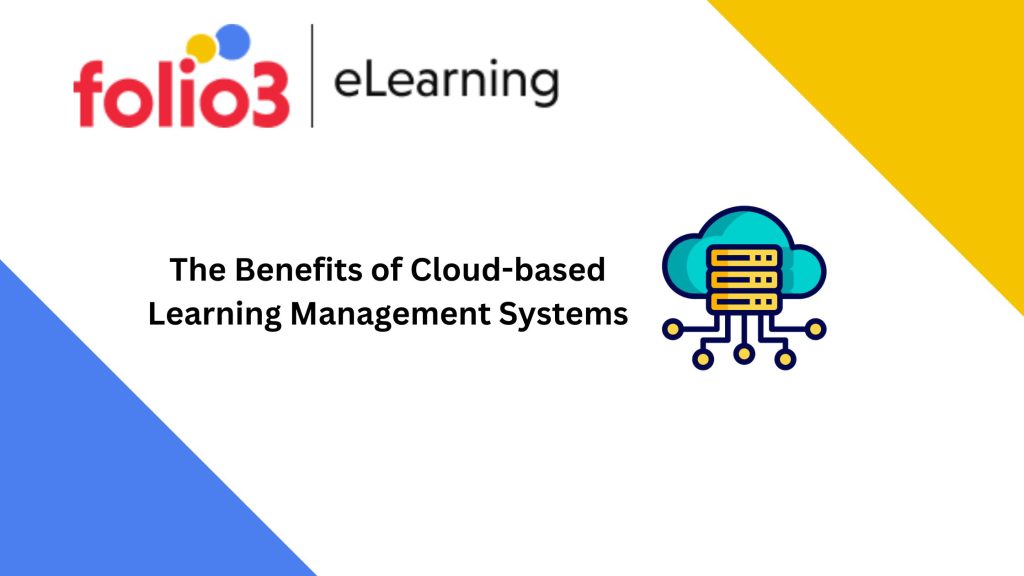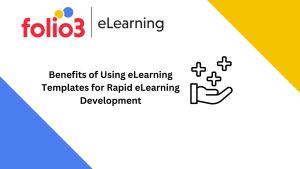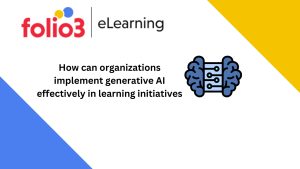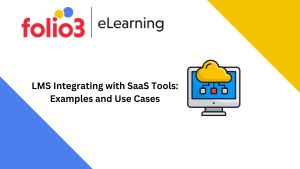
Executive Summary:
A cloud-based Learning Management System (LMS) offers numerous benefits for educational institutions and businesses. Firstly, it provides seamless access to learning materials and resources from anywhere, at any time. Learners can access the LMS using various devices, such as computers, tablets, or smartphones, allowing them to engage in learning activities conveniently. Additionally, a cloud-based LMS offers scalability, easily accommodating a growing user base and expanding content libraries. This scalability ensures the system can adapt to the organization’s evolving needs without requiring significant infrastructure upgrades.
Introduction:
Cloud-based technology has completely changed how we access and engage with information in today’s digital world. This revolution also affects the field of education, as cloud-based learning management systems (LMS) have become potent instruments for distributing successful and effective learning curricula.
Educational institutions and organizations may improve the learning experience, simplify administrative processes, and make learning flexible and accessible for students by utilizing the potential of the cloud.
Educational institutions and organizations can engage with the aid of cloud consulting services and LMS development companies to fully realize the potential of cloud-based LMS platforms.
These specialized LMS development companies have the know-how to help choose the best LMS platform to meet particular needs, integrate it with current systems, and offer continuous support and maintenance.
By collaborating with these professionals, educational institutions may enhance the implementation of their cloud-based LMS and guarantee a smooth transition to a more effective and efficient learning environment.
Let’s look at some benefits of a cloud-based learning management system.

Benefits of Cloud-based Learning Management System:
- Scalability:
For educational institutions, cloud-based LMS platforms provide unmatched scalability unlike conventional on-premises systems, which necessitate large hardware and infrastructure investments, cloud-based LMS platforms may readily support expanding user bases and learning curricula.
- Cost-effectiveness:
An LMS development company prioritizes the cost-effectiveness of an LMS. By using cloud infrastructure, institutions can do away with costly hardware purchases, upkeep, and updates associated with on-premises systems. By utilizing shared resources and doing away with separate infrastructure, the cloud-based strategy lowers the total cost of ownership.
- Flexibility and Accessibility:
For administrators and students alike, cloud-based LMS platforms provide unmatched flexibility and accessibility. Students can participate in self-paced study, collaborate with other students, and access course materials from any location or device with internet access.
- Improved Collaboration and Engagement:
Platforms for cloud-based LMS encourage collaboration and engagement among students. Features like chat rooms, real-time messaging, and group projects encourage student communication and knowledge exchange, resulting in a fun and interactive learning environment.
- Streamlined Administrative Tasks:
With the aid of cloud consulting services, educational institutes explore cloud-based LMS solutions to automate and streamline administrative tasks. The administrative workload on staff can be reduced, and time and effort can be saved by automating tasks like learner registration, course enrollment, grading, and report preparation.
- Improved Data Security and Backup:
Platforms for cloud-based LMSs offer strong data security safeguards to secure sensitive student and institutional data. In order to protect data, cloud consulting services can guide you to cloud service providers that use cutting-edge security protocols, encryption, and frequent security updates. Educational institutions may rely on their experience and infrastructure.
- Continuous System Updates and Maintenance:
Platforms for learning management systems (LMS) hosted in the cloud have this benefit. Cloud service providers must manage and maintain the underlying software and infrastructure. This means that without requiring manual intervention, institutions can benefit from regular upgrades, bug fixes, and security patches.
- Integration with Third-Party Tools and Services:
Platforms for cloud-based LMSs frequently offer the ability to integrate with various third-party tools and services. Educational institutions may improve the learning environment, customize the learning process, and gain insightful data on learner performance and engagement by integrating various technologies and services.
While integration capabilities enable the smooth integration of third-party tools and services, boosting the overall learning experience for students and administrators, regular system updates and maintenance guarantee that institutions have access to the newest features and enhancements.
Conclusion:
In the sphere of education, cloud-based learning management systems (LMS) have transformed how institutions and businesses conduct training and educational initiatives.
Scalability, cost-effectiveness, flexibility, accessibility, collaboration, reduced administrative responsibilities, ongoing system updates, and integration capabilities are all advantages of cloud-based LMS platforms.
Educational institutions may construct efficient, effective, and engaging learning environments that cater to the many demands of students in the digital era by utilizing the potential of cloud technology.
In conclusion, cloud-based learning management systems made by an LMS development company provide a wealth of advantages that transform how education is delivered. Educational institutions can use these platforms to provide scalable, affordable, adaptable, and engaging learning environments that meet the various demands of students.

FAQS: Benefits of Cloud-based Learning Management System
A standard on-premises LMS needs local servers and infrastructure on the premises of an institution, whereas a cloud-based LMS uses remote servers and infrastructure to operate. In contrast to the resource-intensive nature of on-premises systems, cloud-based LMS platforms offer benefits, including scalability, flexibility, and accessibility.
Yes, educational institutions can save money using cloud-based LMS software. They do away with the necessity of costly hardware purchases, upkeep, and upgrades related to on-premises systems. Institutions can lower their total cost of ownership and more effectively use their budgets by utilizing shared cloud resources and subscription-based business models.
Yes, administrative operations like student registration, course enrollment, grading, and report preparation are automated by cloud-based LMS solutions. Administrators may concentrate on providing high-quality instruction because of the time and effort saved by this automation. Comprehensive analytics and reporting capabilities also offer insightful data for making data-driven decisions.
Data security is a top priority for cloud-based LMS platforms, which use cutting-edge security protocols, encryption, and regular security updates. Providers of cloud services have specialized teams to handle and safeguard data, guaranteeing the security and integrity of sensitive data.
Yes, cloud-based LMS solutions frequently offer the ability to integrate with software and services from outside sources. By seamlessly integrating and complementing technologies like video conferencing tools, multimedia content platforms, and learning analytics systems, educational institutions can improve the learning experience.









